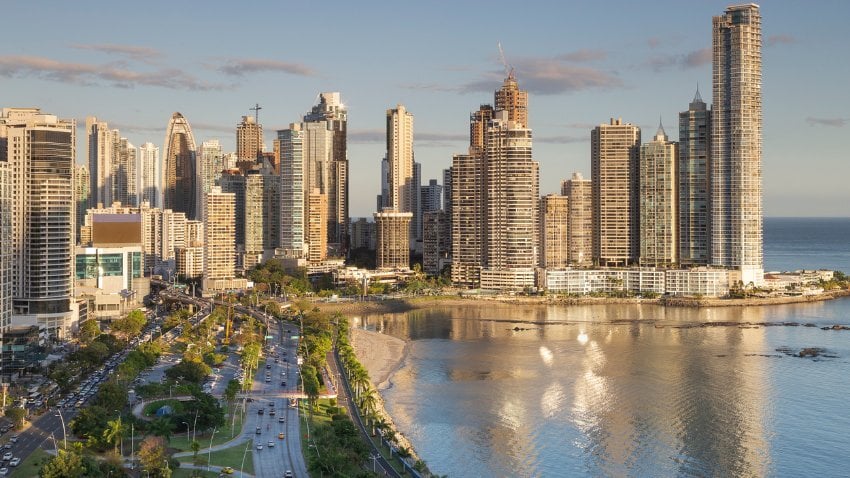Best Cities To Live In Mexico In 2026
Mexico remains one of Latin America’s most compelling destinations, especially for North Americans. More than a million expats call it home, and tens...

If you are a globally-minded person living an international life as an expat or investing in offshore countries to protect your wealth and freedom, you’ll occasionally need to prove the authenticity of your documents. Authorities outside the country where you received the document will question the authenticity of those documents.
Fortunately, thanks to the Hague Convention, it is easier to prove the authenticity of documents with an apostille. As you might know, an apostille is a form of international document certification that gives your paperwork legal standing abroad. It was established through the Hague Convention of 1961 to standardize the recognition of official documents issued in other countries.
You’re fortunate if you live or do business in countries that have signed the Convention. Panama officially signed the Hague Convention and implemented the Apostille process through Law 6 of June 25, 1990. The country was ahead of most of Latin America in this respect. With the Convention, Panama replaced its old, slow, and burdensome legalization system with a streamlined and cost-effective apostille process. You are no longer required to get approval from several ministries and the judicial system in Panama to legalize your paperwork.
This article will explain everything you need to know about apostilles in Panama, including how to obtain one, which documents qualify, the costs involved, and how to avoid common mistakes.
.jpg?width=850&height=478&name=The%20most%20common%20document%20required%20to%20be%20apostilled%20is%20the%20Power%20of%20Attorney%20(POA).jpg)
Apostilles in Panama cover POAs, civil records, company docs, degrees, police checks, medical certificates, and notarized declarations if issued locally
Several types of documents can be apostilled in Panama. The important point is that they must be issued or signed in Panama to be apostilled here:
The most common document required to be apostilled is the Power of Attorney (POA). POAs are necessary for multiple reasons, such as forming a company, conducting a real estate transaction, or managing legal matters from abroad.
Birth, marriage, and death certificates from the Panamanian Civil Registry are widely needed to be authenticated through the apostille process. These are often used for residency, citizenship, or inheritance purposes abroad.
Other documents that need to be apostilled are Certificates of Incorporation and Good Standing from Panama's Public Registry. You’ll use these documents to prove that your company exists and complies with local law.
University degrees and academic transcripts issued by Panamanian institutions can be apostilled, as you’ll need them for job applications, immigration, or foreign education purposes.
Police records or background checks are frequently apostilled because of visa or work permit processes.
Medical certificates may be apostilled for insurance or immigration purposes. Make sure that they are up to date because expired documents will be rejected.
You may also need an apostille for notarized authorizations and personal declarations. Consent letters for minors or sworn statements are typical examples of this kind of document.
%20it%20must%20be%20notarized%20by%20a%20Panamanian%20Notary.jpg?width=850&height=478&name=If%20your%20document%20includes%20a%20signature%20(for%20example%2c%20a%20Power%20of%20Attorney%20or%20letter%20of%20authorization)%20it%20must%20be%20notarized%20by%20a%20Panamanian%20Notary.jpg)
To apostille a document in Panama: notarize it if needed, submit it online via the Ministry’s site, then bring the original to your appointment to get the official green seal
You can have your documents apostilled in three simple steps. Here’s how:
The first step is to determine your document type, as it may need to be notarized before submitting it for an apostille.
If your document includes a signature (for example, a Power of Attorney or letter of authorization), it must be notarized by a Panamanian Notary. The language of the document doesn’t matter. It may be in English, Spanish, or Portuguese. The trick is that the signer must appear in person and declare that they understand the content. The need for translation depends on the type of document.
If your document is a certificate or a copy of a document, it must be notarized to verify its authenticity. The most common documents that require notarization are birth certificates and certificates of incorporation.
Complete the notarization work before submitting your documents for an apostille.
Once notarized or certified, scan the document and go to the Ministry of Foreign Affairs website.
You’ll need to:
Fill out an online form with your personal details
Upload the scanned document
Submit for review
Within 2–3 business days, you’ll receive an email with:
A payment letter
Your appointment date
Instructions for submitting the original document in person
On your scheduled date, visit the Apostille Office in Panama City, El Dorado. Bring:
The original document
The payment letter from the Ministry
Your payment receipt from the National Bank
Once you arrive, submit all the necessary documents and wait for your turn. Since the system isn’t fully digital, expect to spend 1–2 hours there. You’ll receive your document back with a green Apostille certificate attached when complete. This makes the document legally valid in all Hague Convention countries.
The fees to apostille a document are very reasonable:
$2 USD for the standard Apostille fee
$6 USD for fiscal stamps on certified copies
$8 USD for documents with a notarized signature (like POAs)
The total cost is typically around $10 USD. The exact breakdown will be shown in the payment letter emailed to you. However, you must pay in advance of your appointment and bring the receipt with you.
To avoid delays, here’s what not to do:
Submit blurry or faded documents
Try to apostille documents signed outside of Panama
Forget notarization when a signature is involved
Use expired documents, like outdated health or police certificates
Send informal items like printed emails or uncertified personal declarations
Apostille documents from countries not part of the Hague Convention
If your document doesn’t meet the basic requirements, it will be rejected, and you’ll have to start over.

Apostilling documents in Panama is fast and reliable, essential for living globally with confidence. Get it right and avoid costly legal delays
Apostilling documents is not the most fun administrative task to complete. However, when you are dealing with international legal structures, it’s non-negotiable. The good news is that in Panama, the process is relatively fast, affordable, and reliable.
Details like this matter if you're building a life, business, or legacy abroad. Get them right the first time, and you’ll save yourself a world of delays. More importantly, this is part of what it means to live internationally with confidence. Whether setting up a company, acquiring real estate, securing second citizenship, or managing cross-border assets, your paperwork must be ready. If it isn’t, everything can get stuck in legal limbo.
Panama's early adoption of the Hague Apostille system is a great advantage that makes the country a perfect base for expats. It's efficient, internationally connected, and recognized by over 120 countries. If you’re considering Panama as your Plan-B, you can download our free e-book on Plan-B Residencies & Instant Citizenships to start your journey in the best possible way.
If you want the best intel from the expat world, including profitable offshore opportunities, little-known tax-saving strategies, and hard-won insights on immigration, passports, and Plan-B residencies, all delivered to your inbox every single week, then join our daily correspondence, EMS Pulse®. Currently enjoyed by over 84,000 expats and expat-hopefuls worldwide. Fill in the form below to join our newsletter free:

Written by Mikkel Thorup
Mikkel Thorup is the world’s most sought-after expat consultant. He focuses on helping high-net-worth private clients to legally mitigate tax liabilities, obtain a second residency and citizenship, and assemble a portfolio of foreign investments including international real estate, timber plantations, agricultural land and other hard-money tangible assets. Mikkel is the Founder and CEO at Expat Money®, a private consulting firm started in 2017. He hosts the popular weekly podcast, the Expat Money Show, and wrote the definitive #1-Best Selling book Expat Secrets - How To Pay Zero Taxes, Live Overseas And Make Giant Piles Of Money, and his second book: Expats Guide On Moving To Mexico.

Mexico remains one of Latin America’s most compelling destinations, especially for North Americans. More than a million expats call it home, and tens...

South Korea is far more than K-pop and K-dramas. It is a country known for outstanding food, from bustling street markets to high-end dining, as well...

Asia is one of the most fascinating regions in the world for travel, offering an extraordinary mix of cultures, histories, and landscapes. From...